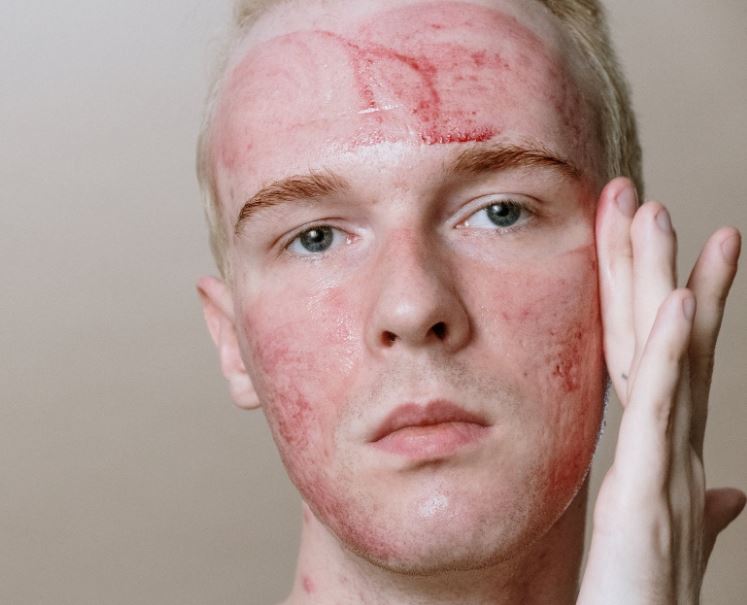While some people are fortunate to have blemishes that fade without leaving a mark, some are left with visual reminders of previous breakouts, which can be emotionally draining. As if acne wasn’t bad enough, a pimple scar can take weeks or even months to fade (if it fades at all).
Think again if you believe there is no hope for stubborn scars. The good news is that many treatments can fade or reduce these scars, making them less visible and allowing you to regain your confidence. Here are some acne scar treatments that you can use to get healthier skin.
Skin Care at Home
A beauty regiment can take time and planning such as filling or refershing your at home gel kit for manicures, organizing beauty items and more. Sunscreen can help to reduce the contrast between scarred and unscarred skin. Medicated creams containing hydroxyl acids or azelaic acid may also be beneficial. Many over-the-counter remedies and items help people control their acne and reduce scars, such as derma rollers.
Retinoids
Some topical retinoids might aid in the removal of acne scars. Acne lesions and inflammation are reduced, and cell regeneration is accelerated when retinoids are applied topically. Retinoids may also aid in the lightening of hyperpigmented acne scars, particularly in individuals with darker skin tones.
You should note that retinoids can make your skin more sensitive to the sun. Anyone using retinoids for scar or acne treatment should wear sunscreen when going outside.
Lactic Acid
Lactic acid can be utilized as a gentle peel to remove dead skin cells. It may aid in scar reduction and smoothing the skin’s overall texture.
Lactic acid may also lighten dark scar tissue, though it can cause hyperpigmentation in some people. Due to this potential side effect, it’s best to test lactic acid-containing products on a small skin area before using them to treat acne scarring.
Lactic acid is found in many acne treatment products. It’s also found in diluted apple cider vinegar, making it a more cost-effective and natural treatment.
Alpha Hydroxy Acids (AHAs)
Alpha hydroxy acids can aid in preventing clogged pores and the removal of dead skin cells. Doctors may prescribe AHAs to treat acne and reduce acne scars.
AHAs are a mild acid that scrapes away the skin’s outer layer to reveal fresh, new skin beneath. This procedure may help with scarring-related discoloration.
Natural Treatments
Many folks use natural remedies to treat acne scars, but its science is murky. Some may cause extra irritation or other problems, so people should exercise caution.
People have used the following home remedies to treat their acne scars:
- aloe vera gel
- baking soda
- coconut oil
- lemon juice
- raw honey
- shea butter
Laser Resurfacing
This method is becoming more popular, and it is frequently used on scars that were previously treated with dermabrasion. People with a history of keloids or darker skin are more likely to experience side effects from this procedure.
Soft Tissue Fillers
Fat, collagen, or other substances injected beneath the skin can plump the tissue over indented scars. The objective is to hide the scars as much as possible. Because the effects are only temporary, repeat treatments must maintain the effect.
This method poses little risk of skin color changes.
Steroid Injection
Injecting steroids into certain raised scars can enhance your skin’s appearance.
Other Energy-Reliant Procedures
Scars can be made less visible with radiofrequency devices and pulsed light sources that do not harm the skin’s outer layer. The results are subtle, and you may need to repeat treatments.
Chemical Peel
Your doctor will apply a chemical solution to your scar tissue to remove the top layer of skin and reduce the visibility of deeper scars. To keep the results, repeat the mild and medium peels. You can only have one deep peel.
Changes in skin color are possible side effects, especially when deep peels are used on dark skin.
Dermabrasion
This procedure is typically reserved for severe scarring. The top layer of skin is removed by your doctor using a speedily rotating brush or other devices. It can completely erase surface acne scars, and deeper acne scars can be made less visible.
Changes in skin color and scarring are examples of potentially severe side effects.
OnabotulinumtoxinA (Botox)
The skin around acne scars can pucker at times. Botox injections relax the surrounding skin, improving the appearance of an acne scar. Because the effects are only temporary, repeat treatments must maintain the effect.
Skin Needling
Your doctor rolls a needle-studded device over the skin to stimulate collagen production in the underlying tissue. It’s a simple, safe, and potentially effective acne scarring treatment. It poses little risk of skin discoloration.
The effects are subtle, and you may require additional treatments.
Surgery
Your doctor will use a minor punch excision procedure to remove individual acne scars and repair the cut with a skin graft or stitches. Subcision is a technique in which the doctor inserts needles under your skin to loosen fibers beneath a scar.
How to Avoid Acne Scars
To reduce the potential of scarring, you should treat the acne aggressively. It’s common to see kids, young adults, parents, and even doctors believe you’ll grow out of acne, which isn’t the case. You can avoid scars by keeping your skin clear.
If you have mild acne, you may treat it yourself using over-the-counter medications such as retinoids or benzoyl peroxide. If you notice signs of scarring or if over-the-counter treatments aren’t working, consult a dermatologist or your doctor. If you’re unsure whether your acne is serious enough to warrant a visit to the doctor, you should probably go.
About one-quarter of acne sufferers develop cystic acne, which is more inflammatory and aggressive. It’s most common on the chest, face, and back, and it appears when acne becomes severe, which can be fatal.
Acne scars are avoidable, and drinking water can help; if they do occur, they are treatable. If you’re dissatisfied with your skin’s appearance due to acne scars, consult with a professional who can tell you the benefits and flaws of your treatment options.
Also, don’t think your acne scars are permanent. There are now excellent laser treatments available. They aren’t magic erasers, but they do help to hide scars.
Some people believe there is nothing they can do and that they must live with acne scars. That is no longer the case.

